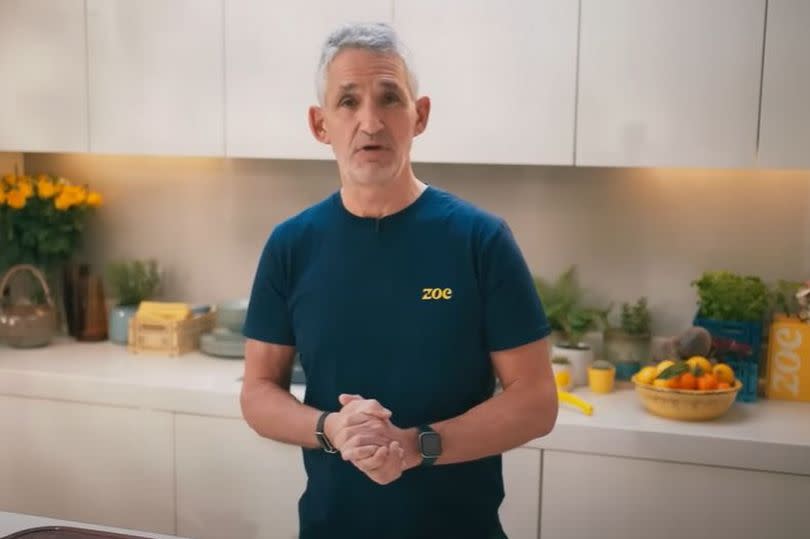Tim Spector launches new super supplement which costs £2.25 a day

A leading nutritional scientist has unveiled a new health supplement packed with over 30 ingredients, claiming it can reduce inflammation and boost gut health. Tim Spector, a professor of genetic epidemiology at King's College London and the founder of the Zoe health app, says that this £2.25-a-day addition will help individuals achieve their goal of consuming 30 different plants.
In a trial involving 50 people, Prof Spector said that one group was given dried croutons while another was provided with Daily 30+. After six weeks, 51% of those taking the supplement reported an increase in energy levels and a significant improvement in their gut bacteria composition - an average five-point rise on Zoe's microbiome score.
Speaking to The Times, Prof Spector criticised the common practice of relying on supplements while maintaining a poor diet. He dismissed most supplements as a "complete waste of money", arguing that there is scant scientific evidence supporting their use. For the latest health and Covid news, sign up to our newsletter here
READ MORE: GP warns 'these symptoms are not normal' urging people to 'speak to doctor'
READ MORE: Feed your children with these foods now to cut risk of dementia as they age
His recommendation for a 30-plant-a-day diet stems from findings that variety is crucial for gut health, which in turn helps with inflammation, fighting disease, and the prevention of diabetes and dementia.
Prof Spector said: "Half the population takes supplements regularly, but 99% have no evidence they work. People pop a multivitamin and carry on eating rubbish.", reports Gloucestershire Live.
According to the scientist, the food supplement contains a whopping 7,000 polyphenols from plants and fungi which offer protection against inflammation. In his words, "they shift the ratio of good and bad bugs so we get a healthier microbiome, which we know leads to a better immune system."
The benefits don't stop there either, with users noting a 21% reduction in hunger after trial runs. As he explained it: "Ultra-processed food makes you hungrier because it's so easy to eat you don't notice it. This is crunchy, textured you feel it on your tongue and that has quite a big effect on hunger."
Improvements were also seen with digestion, with a 55 per cent reduction in indigestion and 35 per cent decreased in constipation. The latter comes down to one thing - fibre.
Each scoop of the supplement delivers a healthy 5g. Although the guideline adult daily amount stands at 30g, the current average intake only sits at 15g, leaving nine out of ten Brits falling short.
Designed to be dusted onto everyday foods like yoghurt and salads, Prof Spector said the ingredients in the supplement are freeze-dried. "The cell structure and fibre are the same, which is important. A few we've had to pulp or squeeze, some of those cells might be damaged and not in their original state, that's why we call it minimally processed."
The supplement costs £39 for a monthly pack (500g), or you can get four for £133 from the Zoe website (members have access to further reductions). Starting from July 17, it will also be available in a leading supermarket priced at £13.50 for a weekly pack and individual 15g sachets would cost £2.25.
Speaking about health in the UK, he stated: "We have the highest [consumption] of ultra-processed food in Europe, the highest number of people of working age who are sick and can't work. We know 80 per cent of common illnesses, including mental illness, could be prevented if people were on the optimum diet."

 Yahoo News
Yahoo News 
